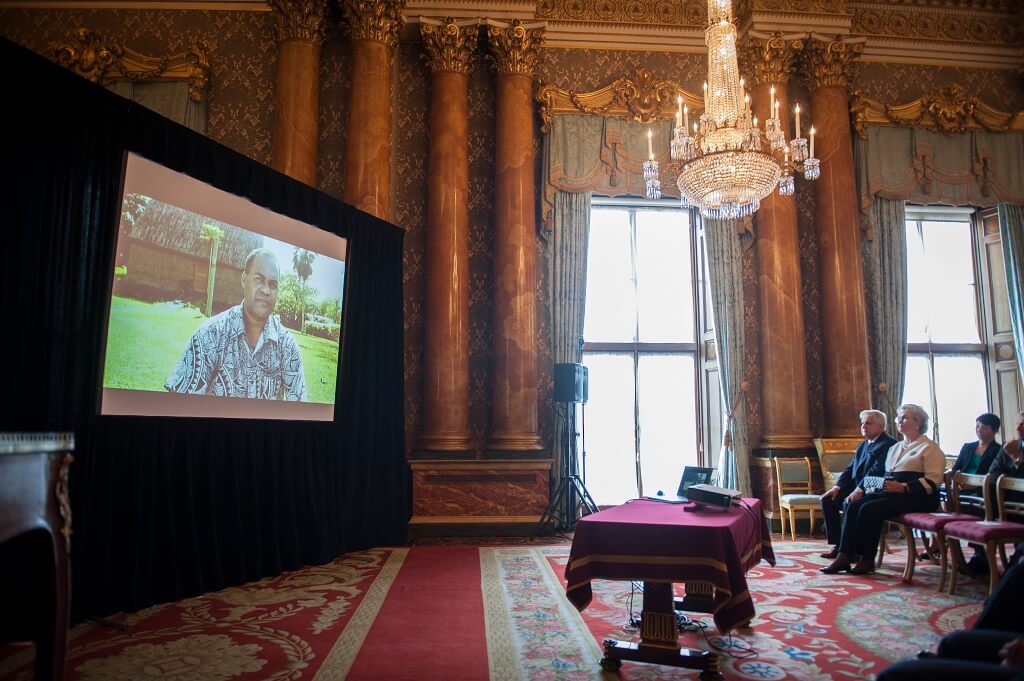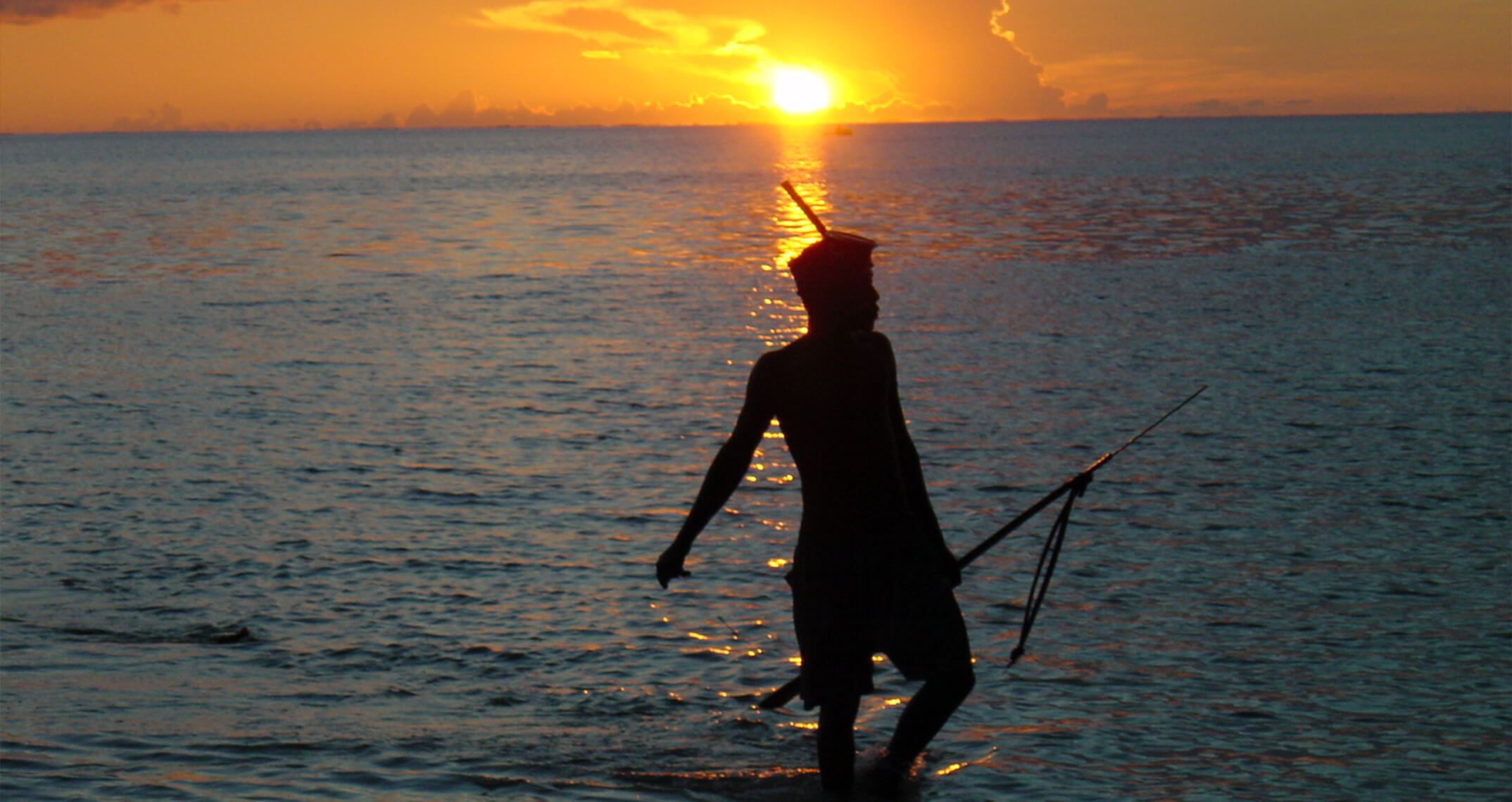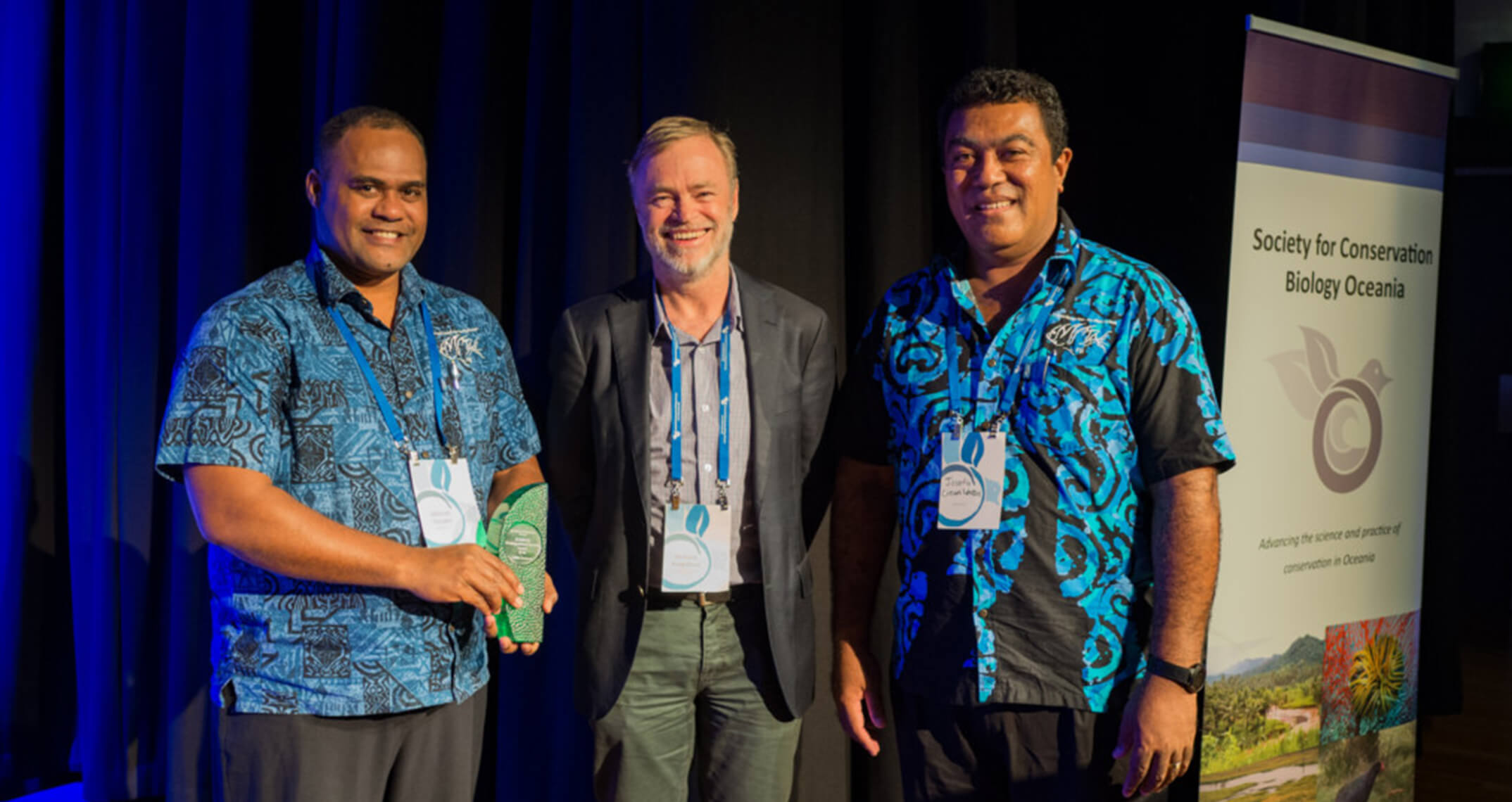Alifereti Tawake, a community advocate and marine researcher from Kadavu, today received the prestigious WWF’s Duke of Edinburgh Conservation Award for his tireless support of communities throughout the region to better manage the land and sea.
Alifereti Tawake’s video message for award’s ceremony.
Tawake helped found the Locally Managed Marine Areas Network (LMMA) 15 years ago as coastal communities were increasingly facing challenges in meeting their food and income in the face of resource decline and few alternative livelihoods.
“It was not too long ago that the scientific community and governments refused to believe that communities could lead the way,” Tawake said. “But this award is recognition of what communities can do if given the chance, and what they can contribute the global efforts to conserve our planet.”
Tawake added that he received the award not as an individual, but as a representative of all many local leaders, who have demonstrated over decades that the most effective way to conserve the world’s natural resources is by empowering communities.
Starting in a few villages across the Indo Pacific, the grassroots network has steadily spread the community success stories and promoted simple, locally-led solutions to improving resource health across the region.
In Fiji alone, starting in the district of Verata, the success there spread to more than 450 communities that make of Fiji LMMA today, who are using a suite of management tools, including limiting destructive fishing gear, reducing land-based threats, and establishing protected areas.

Video message from Alifereti Tawake played at ceremony. Photography by Fergus Burnett/WWF
LMMA Networks also exist today in the Philippines, Indonesia, Papua New Guinea, Micronesia, Palau, and the Solomon Islands and with more island nations considering launching networks. Just this week Tonga community leaders are visiting with Fiji LMMA to learn how to set up a network there.
The LMMA movement in turn has sparked interest globally, with requests for support rom Southeast East Asia, Africa and Central and South America. Just last month, Tawake visited Madagascar to help advance an LMMA network there. Tawake received the Duke of Edinburgh Award with Dr Alasdair Harris, founder of Blue Ventures, who has worked to advance the LMMA in Madagascar.
“Both winners demonstrate by working with communities, businesses and governments, we can solve the biggest challenges facing our marine environment. Their ability to combine marine science with local knowledge to create practical solutions exemplify WWF’s global marine conservation work,” said Yolanda Kakabadse, President of WWF International.
Tawake is currently in Kadavu, at the Fiji LMMA Annual General Meeting, where he shared the award with the communities there, as they are the ones who proved the model.
But Tawake cautioned that while the award recognizes the success of the LMMA movement, it does not mean the work is done, as most communities worldwide receive little to no support. Hundreds of millions of people depend on marine life for food around the world, many in developing nations with little alternative sources of protein.
“A crisis is coming. And if more governments and funders don’t step up to support communities in managing their resources, this award will become a symbol of shame, not pride, as we knew how to fix the problem but ultimately we failed to support the solution,” Tawake said. “So we ask everyone to help raise the voice of the communities and help increase support for the LMMA movement.”




